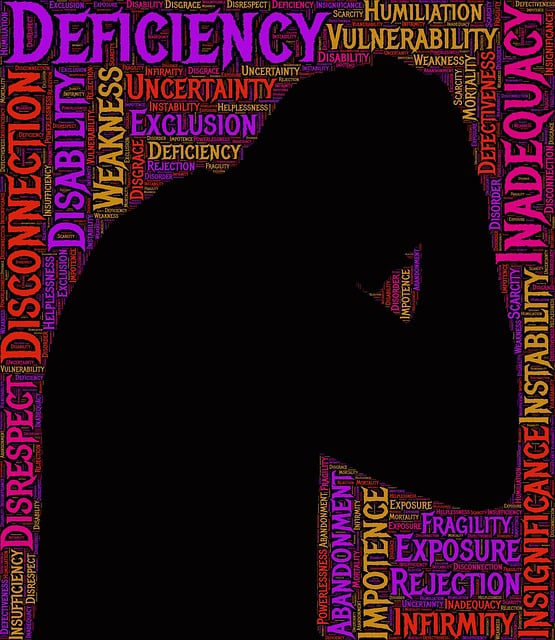Longmont's mental health policies focus on couples' communication issues, utilizing evidence-based practices for stress reduction, relationship support, and crisis intervention. These initiatives lead to healthier relationships, stronger support systems, and community resilience. Key programs ensure timely care for severe distress, promoting faster recovery. Effective therapy involves addressing past traumas, enhancing self-awareness, and reducing stigma. Advocacy groups drive policy reforms through campaigns, workshops, and engagement with policymakers, expanding access to quality mental health care, particularly for couples facing communication challenges in Longmont.
Mental health policy analysis and advocacy play a pivotal role in shaping communities, particularly in Longmont. This article delves into three key areas: understanding the impact of mental health policies on local communities, identifying communication gaps in therapy services for couples, and exploring effective advocacy strategies to enhance access and quality of care. By addressing these aspects, we aim to illuminate critical issues faced by Longmont residents and offer insights into actionable steps for improvement.
- Understanding Mental Health Policy and its Impact on Longmont Communities
- Identifying Communication Gaps in Therapy Services for Couples
- Advocacy Strategies to Improve Access and Quality of Care
Understanding Mental Health Policy and its Impact on Longmont Communities

In Longmont communities, mental health policy plays a pivotal role in shaping the well-being and resilience of residents, particularly when it comes to addressing couples’ communication issues and therapy accessibility. Effective mental health policies are designed to ensure that individuals and families have access to evidence-based practices and resources tailored to their unique needs. This includes support for those facing relationship challenges, as well as crisis intervention guidance for acute mental health situations. By prioritizing Mental Health Awareness, Longmont can foster an environment where stress reduction methods are widely understood and utilized, ultimately enhancing the quality of life for its citizens.
The impact of these policies reverberates through various aspects of community life. For instance, improved access to therapy can help couples in Longmont navigate communication issues, fostering healthier relationships and stronger support systems. Additionally, mental health initiatives that focus on crisis intervention ensure that individuals experiencing severe distress receive prompt and effective care, preventing escalation and promoting faster recovery. Such proactive measures contribute to a more resilient and connected community, where residents are better equipped to handle life’s challenges and pursue their personal growth.
Identifying Communication Gaps in Therapy Services for Couples

In Longmont and beyond, effective communication is a cornerstone of successful couples therapy. However, identifying gaps in this critical aspect of care is essential to enhancing overall therapeutic outcomes. Many couples struggle with unspoken issues, often rooted in past traumas or ingrained patterns of interaction, which can significantly impede their progress. These communication gaps may manifest as misunderstandings, emotional disconnects, or even silent treatments, hindering the couple’s ability to navigate challenges together.
Addressing Longmont Couples Communication Issues Therapy requires a multifaceted approach. Trauma support services play a vital role in helping partners process and overcome past traumas that might be impacting their current interactions. Additionally, incorporating self-awareness exercises can foster open dialogue by encouraging individuals to reflect on their emotional responses and communication styles. Through these and other strategic interventions, mental illness stigma reduction efforts can also contribute to creating a more supportive environment, enabling couples to seek help without fear of judgment.
Advocacy Strategies to Improve Access and Quality of Care

Advocacy plays a pivotal role in shaping mental health policies and ensuring accessible, high-quality care for all. For individuals facing challenges like Longmont couples communication issues or seeking therapy for specific concerns such as mindfulness meditation, self-esteem improvement, and burnout prevention, advocacy efforts can significantly impact their support system. One effective strategy is raising awareness through community events, educational workshops, and social media campaigns to dispel stigma surrounding mental health and encourage early intervention.
By engaging with local policymakers and healthcare providers, advocacy groups can drive policy changes that improve service delivery. This includes pushing for expanded insurance coverage that includes a range of therapeutic services beyond traditional talk therapy, incorporating innovative practices like mindfulness meditation into treatment protocols, and prioritizing programs focused on prevention, especially for at-risk populations. Such proactive measures ensure that individuals in Longmont and beyond receive the comprehensive care they need to navigate and overcome mental health challenges effectively.
Mental health policy analysis reveals critical gaps, particularly regarding communication between therapists and Longmont couples. By identifying these issues, we can advocate for more inclusive, accessible, and high-quality therapy services tailored to the unique needs of Longmont communities. Through strategic advocacy, we aim to bridge communication divides, ensuring that every couple receives the support they need for improved mental well-being.














